If you’re a new mom then you must be thinking about what to eat when breastfeeding. In this post, I will be explaining what are the best foods to eat for breastfeeding moms and also discuss about
- Healthy Diet Plan For Breastfeeding Moms
- Frequently asked questions on breastfeeding diet
When breastfeeding you need to eat well to stay healthy. You need to know that whatever you eat will change the taste and smell of your milk. It also gives babies many different breast milk flavors.
Here is a List of Foods for breastfeeding mothers to concentrate on when you look at your breastfeeding diet:
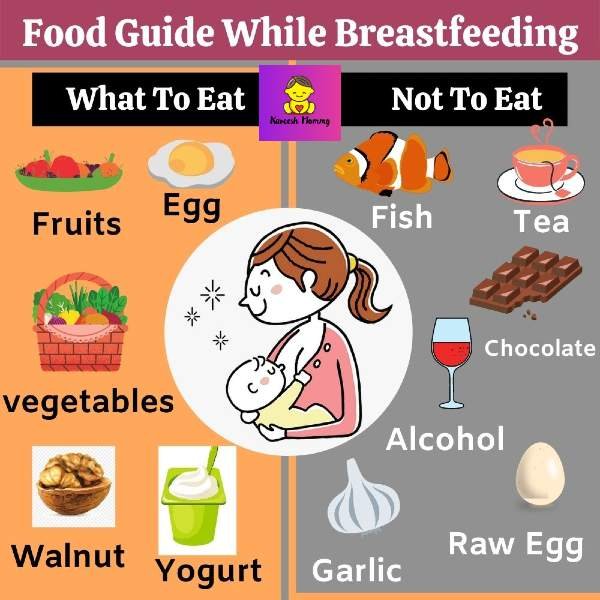
What should I eat when I’m breastfeeding?
You must Priority on nutrient-dense Breastfeeding Foods. Some of the most nutrient-dense foods include:
- Liver: High in all vitamins B, iron, and zinc. There are vital nutrients that could be lost during puberty and pregnancy.
- Salmon: Salmon is rich in high-quality protein. Like omega-3 fats, protein is an essential nutrient that you must get from your diet. (Trusted Source).
- Eggs: Chicken eggs are an affordable source of protein and other nutrients. They’re also naturally high in cholesterol. But the cholesterol in eggs doesn’t seem to raise cholesterol levels the way other cholesterol-containing foods do, such as trans fats and saturated fats.
- Leafy Green Vegetables: Leafy green vegetables are a vital component of a balanced diet. They are filled with vitamins, nutrients, and protein, but poor in calories. Consuming a leafy green diet will offer a range of health benefits, including decreased risk of obesity, heart disease, elevated blood pressure, and mental deterioration (Trusted Source).
- Berries like blueberries: Blueberries are popular berries that serve as a great source of vitamin K. Blueberries contain good amounts of fiber, vitamin C, and antioxidant anthocyanins. Eating blueberries may help reduce risk factors for heart disease and diabetes. (Trusted Source).
- Raspberries: Raspberries can range in color from the popular red and black varieties to purple, yellow, or golden. Each color of berry has a unique composition of vitamins, minerals, and antioxidants.
- Strawberries: Strawberries mainly consist of water (91%) and carbohydrates (7.7%). They contain only minor amounts of fat (0.3%) and protein (0.7%). Strawberries’ carbs consist mainly of fibers and simple sugars. They have a relatively low GI and should not cause big spikes in blood sugar levels.
- Quinoa, millet, and oats: Great non-gluten grains that are high in magnesium, phosphorus, and folate. Good for breast milk production too!
- Seaweed-like kelp: One of the best sources of micro-minerals like iodine.
- Root vegetables like carrots, beets, sweet potatoes, yams: High in antioxidants, beta carotene, and healthy carbs
what can you eat while breastfeeding
A breastfeeding mom needs to eat foods that contain folic acid, protein foods, calcium, iron, and vitamins. You will read about this food and its needs during breastfeeding.
Folic Acid Needs
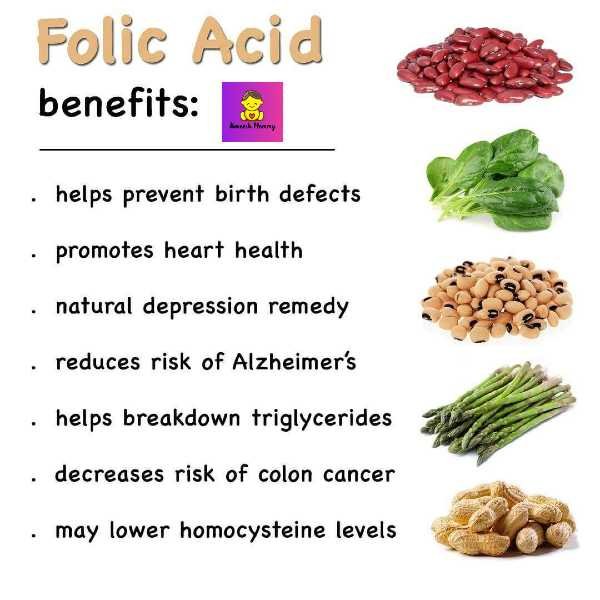
If you have early pregnancy birth defects then this food is important for your diet. It helps the infant baby in growth. And it is also helpful for your heart.
You should eat 500 micrograms each day less than the 600 micrograms you needed during pregnancy.
Protein Needs
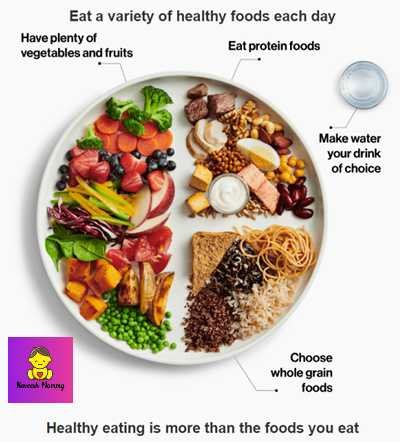
You should eat two or three portions of protein a day while breastfeeding. The serving of meat, fish, or poultry is equivalent to 3 to 4 ounces. Great protein sources include:
- Meat
- Poultry
- Seafood
- Eggs
- Cheese
- Milk and yogurt
- Cottage cheese
- Tofu
- Dried beans
A note about seafood: The Food and Drug Administration (FDA) recommends that nursing mothers not eat shark, swordfish, king mackerel or tilefish because of their high mercury content.
Calcium Needs
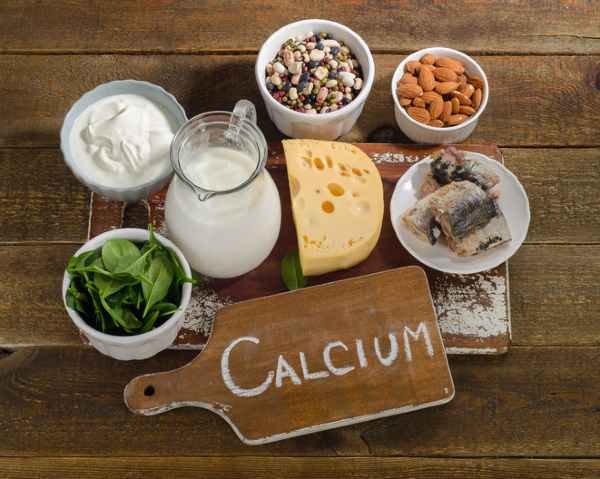
Calcium is essential to a baby’s brain activity, muscle contraction, and skeletal growth. It’s also a relaxing mineral that will help you relax. Studies have shown that moms who eat calcium-rich ingredients, such as milk, produce more calcium-rich milk.
Sadly, some babies respond in mother’s milk to milk proteins and experience gas, reflux, and/or other digestion problems that vanish as soon as the mother’s diet removes milk. Start with milk to see for any reactions in your diet. You should eat these :
- Seeds: are tiny nutritional powerhouses. Some are high in calcium, including poppy, sesame, celery, and chia seeds. (Trusted source)
- Cheese: Most cheeses are excellent sources of calcium. Parmesan cheese has the most, with 331 mg — or 33% of the RDI — per ounce (28 grams) (5).
- Yogurt: is one of the best sources of calcium, providing 30% of the RDI in one cup (245 grams). It’s also a good source of protein and other nutrients. (Trusted source)
- Beans and lentils: are high in fiber, protein, and micronutrients. They also boast lots of iron, zinc, folate, magnesium, and potassium. (Trusted source)
- Almonds: Almonds are high in nutrients like healthy fats, protein, magnesium, and others. One ounce, or 22 nuts, delivers 8% of the RDI for calcium. (Trusted source)
Iron Needs
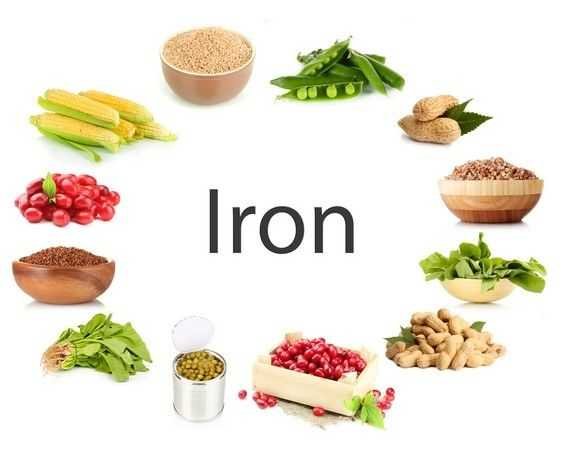
Breast milk is famous for being poor in iron, which is why it is so important to postpone cord clamping! However, it is easy to digest and assimilate iron content in breast milk from a newborn.
Having said that, whether a mom has been dealing with iron deficiency or has a history of anemia, she would first want to increase food that is high in iron. Babies need iron for red blood cell formation, oxygen displacement, and proper brain development. In this condition You should eat these :
- Red meat, chicken, and fish
- Legumes – for example, baked beans
- Nuts and dried fruit
- Wholegrain bread and cereals
- Green leafy vegetables.
Vitamins Needs
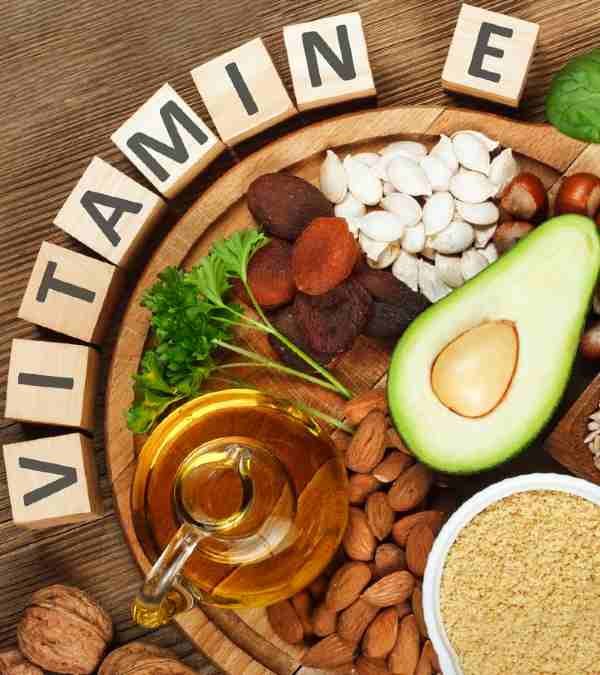
- Vitamin A: this nutrition helps newborn babies to build vision, immunity, and nervous systems, and bone structure. For vitamins A You must eat plenty of egg yolks, liver, and fatty fish like salmon, and a daily dose of cod liver oil. Sources
- Vitamin B12: for proper red blood cells, brain function, and DNA synthesis you need this vitamin for your baby. For vitamins B12 You must eat Red meat, eggs, liver, clams, and sardines. Dairy products and eggs are also good sources.
- Vitamin C: is important for proper brain and tissue development and function. You should eat citrus fruits, berries, tropical fruits, tomatoes, capsicum, and potatoes.
Snack suggestions
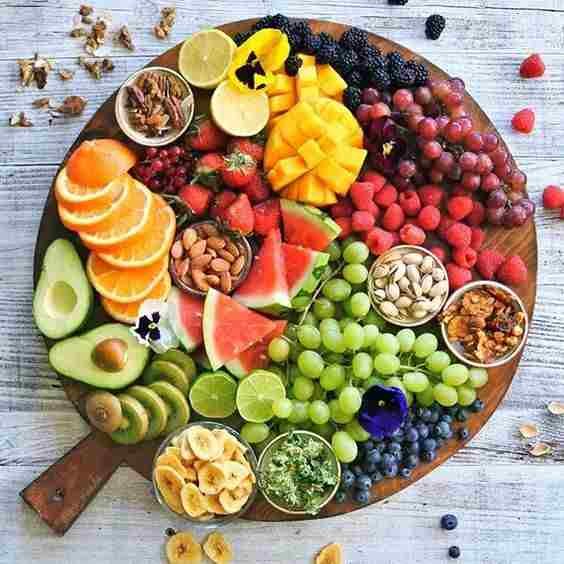
Ideal snacks that provide nutrients and energy include:
- Sandwiches, bread, and raisin toast
- Milk drinks
- Cereal with milk
- Fruit
- Yogurt
- Nuts and seeds
- Avocado
- Cheese and biscuits
- Dip and vegetables.
what can I eat while breastfeeding “Frequently questions”
1. Should my breastfeeding meal plan be low-carb, low-fat, or low-calorie?
If you are planning to lose weight then you must not choose any breastfeeding food or diet which are low in the card, low in fat, and low in calories.
Some moms have found that very low-carb diets decrease milk supply. Going off the diet generally brings milk volume right back up again. If you still want to try then read these tips.
Some tips for moms who wish to try a low-carb diet:
- You must wait until the baby starts eating solid foods. it would be better.
- You have to drink enough water to avoid dehydration.
- You must Avoid a sudden decrease in caloric intake. Start gradually.
- New moms must maintain calories 1800 and above per day. Make a chart to keep eye on calorie intake.
- Most sources recommend that nursing mothers avoid Phase I of the diet, and instead start with Phase II.
- Watch for a diminished milk supply. Keep an eye on the baby’s diaper output and weight gain.
I like to tell new moms that nutrients are right for your body. Don’t worry about carbs, fat, or protein after birth. Your main aim must be a healthy diet that benefits your newborn baby in earlier days of breastfeeding. (Nutrition Tips for Breastfeeding Mothers, n.d.)
2. Do I need to take vitamins when breastfeeding?
All, even pregnant and breastfeeding mothers, should consider taking a daily supplement containing 10mcg of vitamin D.
Many People get vitamin D from sunlight when they are outdoors in the month of March/April and the end of September. So you should not try to take vitamin D supplements in these months.
But If you live somewhere that doesn’t have a lot of sunshine, especially during winter, your body may struggle to make enough vitamin D so supplements are recommended – your healthcare professional can advise you. (Breastfeeding and diet, 2020)
3. What kind of vitamins should I take while breastfeeding?
I have already talked about this in vitamin needs you must eat food that contains Vitamins A, Vitamins B12, Vitamins C, and vitamin D.
Breastfeeding foods that contain vitamins are:
- egg yolks,
- liver, and
- fatty fish like salmon
- Red meat, eggs, liver, clams, and sardines.
- Dairy products and eggs are also good sources.
- citrus fruits
- berries, tropical fruit, tomatoes, capsicum, and potatoes.
4. Which foods should I avoid while breastfeeding?
There is not much food to avoid while breastfeeding. But there are specific food lists that breastfeeding moms must avoid when breastfeeding newborns. These foods and drinks can harm new bor babies’ health so keep in mind.
- Fish high in mercury: Due to concerns over mercury poisoning in infants, women who are breastfeeding should avoid fish that are high in mercury, such as sharks, swordfish, and bigeye tuna.
- Alcohol: Women who are breastfeeding are recommended to limit alcohol to one drink or less per day and to wait at least 2 hours before breastfeeding. Frequent and excessive alcohol intake can reduce milk production and have serious effects on your baby.
- Caffeine: During breastfeeding, women are recommended to limit caffeine intake to 300 mg per day or less to prevent irritability and disrupted sleep patterns in their infant.
- Highly processed foods: As highly processed foods are generally low in essential nutrients and may affect your child’s food preferences later in life, it’s recommended that breastfeeding moms limit their intake of foods that are high in added sugars and processed fats.
5. Do I need extra calories when breastfeeding?
Yes, to meet your nutritional needs while breastfeeding you need more calories. A well-nourished breastfeeding mother is recommended 450 to 500 kilocalories (kcal) food calories per day. (CDC, 2020)
compared with the amount they were consuming before pregnancy (approximately 2,300 to 2,500 kcal per day for breastfeeding women versus 1,800 to 2,000 kcal per day for moderately active, non-pregnant women who are not breastfeeding).
6. Can I diet during breastfeeding?
It is advisable by doctors that you should not intentionally lose weight until after the second month. This gives your body enough time to maintain a milk supply for the newborn. You should know that when you are breastfeeding your baby you are burning 200 to 500 calories per day (this is higher calories than you needed to maintain pre-pregnancy weight). This way you are burning extra calories without a weight loss program.
If you want to diet during breastfeeding read “Six guidelines for safe dieting during lactation”
- Wait until your baby is two months old before dieting
- Study shows that if you breastfeed more frequent and longer than six months then you can lose maternal weight without a diet.
- The study also shows that you must consume 1500-1800 calories per day, if going below this number may put supply at risk. and most women should stay at the high end of this range.
- Keep weight loss at less than 1.5 pounds per week. You can lose 1.5 pounds per week or 6 pounds per month after the second month and not affect the milk supply or the baby’s well-being.
- Decrease the calories gradually. You should not suddenly drop calories; this may reduce the milk supply.
- Avoid quick-fix solutions. Doctors always advise new moms not to use Liquid diets, low-carb diets, fad diets, weight loss medication, while breastfeeding.
7. Do I need more water when breastfeeding?
Yes, It is very normal for breastfeeding mothers to become more thirsty. Nursing moms need extra fluids during breastfeeding to compensate for the lack of fluids in their bodies and to improve milk development. It is also smart, during breastfeeding, to obey the basic principle: drink as soon as you are thirsty.
How Much Water Should a Breastfeeding Mother Drink?
A breastfeeding mom must drink 8 to 12 times a day. This way you will get a minimum of 8 glasses of water in a day.
You would ideally be aware of the signals of the body. Based on temperature, activity level, age, etc., body needs can differ from person to person. If you’re thirsty, just reach out for a water bottle. Hold on and drink one glass of water once you finish breastfeeding the infant.
By dividing your body weight by 2 you can measure your water consumption requirements. Therefore, you would take between 1.8-2 liters of fluids a day, if your weight is 60 kgs.
8. Is being vegetarian affect my breast milk?
No, Overall, diets that include more fruits and vegetables and less fat are healthier than those containing lots of meat and sugar, and moms who make a conscious choice to become vegetarians or vegans are more likely to be health-conscious than those who eat lots of fast food. But
Vegetarian diets tend to be bulky due to the number of plant products, and this may cause them to have a low caloric density. A diet that is too low in calories will cause the body to use protein for energy, decreasing the amount of protein available to you and your baby.
The biggest concern for vegans is the lack of Vitamin B-12, and they may be low on folate and iron, all of which are found in animal products.
Vitamin B12 deficiency may develop in the breastfed infant by 2 – 6 months of age, but may not be clinically apparent until 6 – 12 months. Signs and symptoms of severe vitamin B12 deficiency in infants include vomiting, lethargy, anemia, failure to thrive, hypotonia (low muscle tone), and developmental delays. (Anne Smith, IBCLC)
Conclusion
When you are breastfeeding you do not need any special breastfeeding food. But remember whatever you eat must be nutritional for you and your baby. This way you can stay healthy and lose weight and also increase breastmilk at the same time. These breastfeeding diets are:
- Plenty of fruits and vegetables
- Grains: oats, brown rice, and bread labeled
- Wholegrains, whole meals, or wholewheat
- potatoes, pasta, and couscous are also high in starch, an important source of energy.
- You also need lean protein too: chicken, eggs, pulses, lentils, fish and lean beef, healthy fats, found in olive oil, nuts, seeds, avocados, and oily fish such as salmon or mackerel.
- Oily fish is good for your health and your baby’s development, but you shouldn’t have more than two portions – around 140 g (5 oz) – of oily fish (or more than one portion of swordfish, shark, or marlin) a week, as these may contain pollutants.
Here’s what you can eat when breastfeeding every day to make sure you get the foods you need to give your baby a taste for nutritious food early on:
Youtube videos
- What I Eat In A Day Breastfeeding |INCREASES MY MILK Production!
- Healthy What I Eat In A Day | While Breastfeeding | Postpartum
- Best foods to eat when breastfeeding
Related articles
- 30 Breastfeeding Tips For Newborns: New Mom Must Know 2021
- 10 Best Nursing Pillows: For New Born Baby 2021
Breastfeeding and diet. (2020, December 7). Nhs.uk. https://www.nhs.uk/conditions/baby/breastfeeding-and-bottle-feeding/breastfeeding-and-lifestyle/diet/
Breastfeeding and everyday life. (2017, February 1). Womenshealth.gov. https://www.womenshealth.gov/breastfeeding/breastfeeding-home-work-and-public/breastfeeding-and-everyday-life?_ga=2.202972113.1351684360.1613395813-2015042467.1613110532
CDC. (2020, February 10). Diet considerations for breastfeeding mothers. Centers for Disease Control and Prevention. https://www.cdc.gov/breastfeeding/breastfeeding-special-circumstances/diet-and-micronutrients/maternal-diet.html#:~:text=An%20additional%20450%20to%20500
Eat Healthy While Breastfeeding: Quick tips – MyHealthfinder | health.gov. (n.d.). Health.gov. https://health.gov/myhealthfinder/topics/pregnancy/nutrition-and-physical-activity/eat-healthy-while-breastfeeding-quick-tips
How to Build a Healthy Eating Pattern. (2015). https://health.gov/sites/default/files/2019-10/DGA_Healthy-Eating-Pattern.pdf
Nutrition Tips for Breastfeeding Mothers. (n.d.). Ucsfhealth.org. https://www.ucsfhealth.org/education/nutrition-tips-for-breastfeeding-mothers#:~:text=Breastfeeding%20mothers%20need%20to%20take
Nutrition While Breastfeeding | WIC Breastfeeding. (n.d.). Wicbreastfeeding.fns.usda.gov. https://wicbreastfeeding.fns.usda.gov/nutrition-while-breastfeeding
1 National Health Service (NHS) [Internet]. Burnley, UK: Department of Health; 2018. Should pregnant and breastfeeding women avoid some types of fish?; 2015 Jul 06 [cited 2018 Apr 12]; Available from: https://www.nhs.uk/chq/Pages/should-pregnant-and-breastfeeding-women-avoid-some-types-of-fish.aspx
2 Oberhelman SS et al. Maternal vitamin D supplementation to improve the vitamin D status of breast-fed infants: a randomized controlled trial. Mayo Clin Proc. 2013;88(12):1378–1387.
3 Thomas M, Weisman SM. Calcium supplementation during pregnancy and lactation: effects on the mother and the fetus. Am J Obstet Gynecol. 2006;194(4):937-945.
4 Pitt et al. Reduced risk of peanut sensitization following exposure through breast-feeding and early peanut introduction. J Allergy Clin Immunol. 2018;141(2):620-625.e1
5 Dewey KG. Energy and protein requirements during lactation. Annu Rev Nutr. 1997 Jul;17(1):19-36.
6 Food Standards Agency (FSA) [Internet]. London, UK:Crown copyright 2002. Eating for breastfeeding; [cited 2018 Apr 13]; Available from: https://www.food.gov.uk/sites/default/files/multimedia/pdfs/board/life02breastfeeding1109.pdf
7 National Health Service (NHS) [Internet]. Burnley, UK: Department of Health; 2018. Breastfeeding and diet; 2016 Jan 29 [cited 2018 Apr 12]; Available from: https://www.nhs.uk/conditions/pregnancy-and-baby/breastfeeding-diet
8 Haastrup MB et al. Alcohol and breastfeeding. Basic Clin Pharmacol Toxicol. 2014;114(2):168-173.
9 HealthyChildren.org [Internet]. Itasca, IL, USA: American Academy of Pediatrics;2017. Alcohol & Breastmilk; 2015 Nov 21 [cited 2018 Apr 13]. Available from: https://www.healthychildren.org/English/ages-stages/baby/breastfeeding/Pages/Alcohol-Breast-Milk.aspx
10 Mennella JA et al. Prenatal and postnatal flavor learning by human infants. Pediatrics. 2001;107(6):e88.
11 Academy of Breastfeeding Medicine. ABM clinical protocol# 24: allergic proctocolitis in the exclusively breastfed infant. Breastfeed Med. 2011;6(6).
